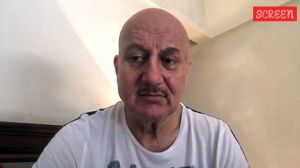PM hangs up on Sinha, gives Paswan the nod
NEW DELHI, JUNE 10: Minister for Communications Ram Vilas Paswan scored a major victory over Minister for Finance Yashwant Sinha today whe...

NEW DELHI, JUNE 10: Minister for Communications Ram Vilas Paswan scored a major victory over Minister for Finance Yashwant Sinha today when Prime Minister Atal Behari Vajpayee endorsed his free-telephone scheme for telecom employees with some minor tinkering, presumably to help Yashwant Sinha save face.
Briefing the Press after the hour-long compromise meeting called by Vajpayee today, Principal Secretary Brajesh Mishra said: “The package was negotiated after careful deliberations” and that it was subject to the employees cooperation with corporatisation of the Department of Telecommunication’s services by October 1 this year. Mishra said the corporatised Department of Telecom Services would be called Bharat Sanchar Nigam Limited. Mishra made the announcement in the presence of both Paswan and Sinha.
According to the “negotiated” package, the bonus demanded by the employees will be restricted to 70 days (instead of the 73 demanded by them) and the number of free calls for them will be 150 instead of 250.
Paswan stuck to his stance that the entire package would cost less than Rs 100 crore, and Sinha chose not to raise his objections, presumably because the Prime Minister had clearly overridden them.
Sinha’s objections were based on internal calculations of the communications ministry that the free phones for 3.2 lakh employees of the DTS would cost a whopping Rs 1,200 crore — Rs 800 crore for just installing the phones at Rs 25,000 per phone, Rs 320 crore based on the fact that each telephone with a private subscriber yields Rs 10,000 of annual revenue and Rs 80 crore for the 150 bi-monthly free calls that these employees would get.
How little Paswan’s package was changed can be judged from the fact that while the Government made it sound as if the corporatisation of the DTS had been advanced, the original date for this was around September this year anyway — the reason why it seemed that the date had been advanced is that Paswan had been maintaining, after he became minister, that the corporatisation would take place only in the beginning of next year.
Similarly, keeping the bonus for 1999-00 at 70 days instead of 73 is just a saving of Rs 36 crore, minuscule when compared to the loss incurred.
The Paswan-Sinha battle came out into the open when a few days after Paswan announced his largesse, Sinha went public with his opposition to such largesse, though in an oblique manner. That very day, an inspired leak to the Press alleged that the full Telecom Commission had cleared the package, and that this also included Finance Secretary Piyush Mankad.
On his return from a visit abroad, Mankad protested and the spokesperson for Paswan’s ministry had to issue a clarification stating that Mankad was not part of the Telecom Commission meeting when this was passed. A day later, Sinha wrote to the PM complaining about Paswan’s largesse.
Later today, the BJP sought to play down the controversy, saying that Paswan should have consulted the PM on the move. “The minister should have first consulted Vajpayee before taking the decision as it involved expenditure from the public exchequer,” is all that party vice-president J P Mathur had to say on the matter. “Prior consultations would not have led to an unnecessary public debate on the issue,” he said.
After today’s victory, officials of the Department of Telecommunications said Sinha had no locus standi in the matter anyway, since the money was to be raised by the DoT and no subsidy was coming from the general exchequer. It was the DoT’s own earned money which was being spent.
How Paswan won
*Free telephone offer for 3.2 lakh telecom employees approved. Paswan says it’s a one-time expenditure of just Rs 24 cr and Rs 68 cr annually. Internal estimates suggest it will cost Rs 1,200 cr
*Department of Telecom Services to be corporatised by Oct 1, the original deadline which was later extended
*Bonus for employees to be kept at 70 days instead of 73 — to save Rs 36 cr
*Free calls to be restricted to 150 per two months instead of 250 as demanded by the employees



- 01
- 02
- 03
- 04
- 05




























